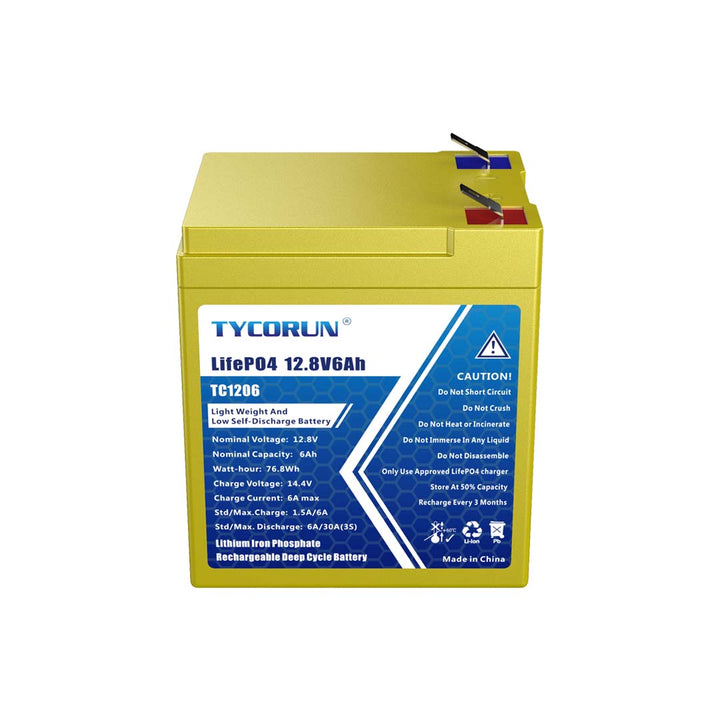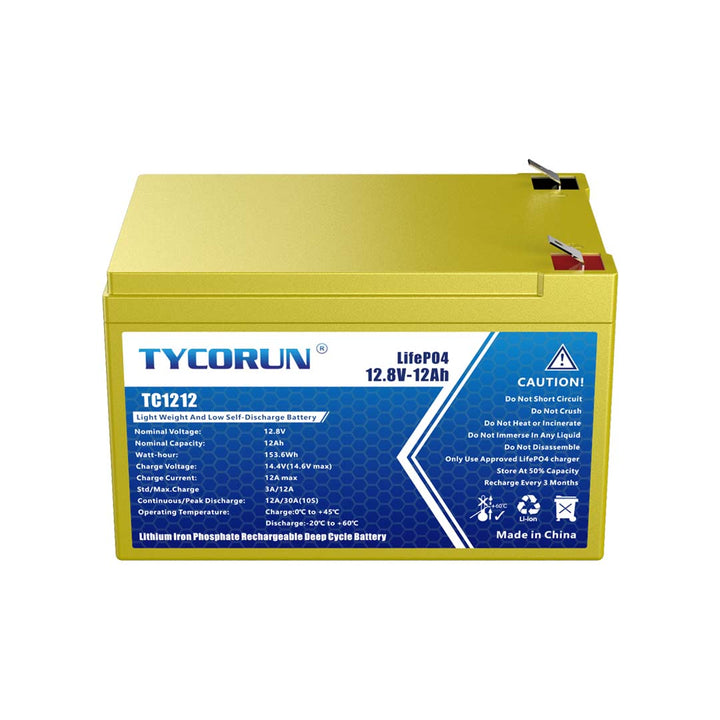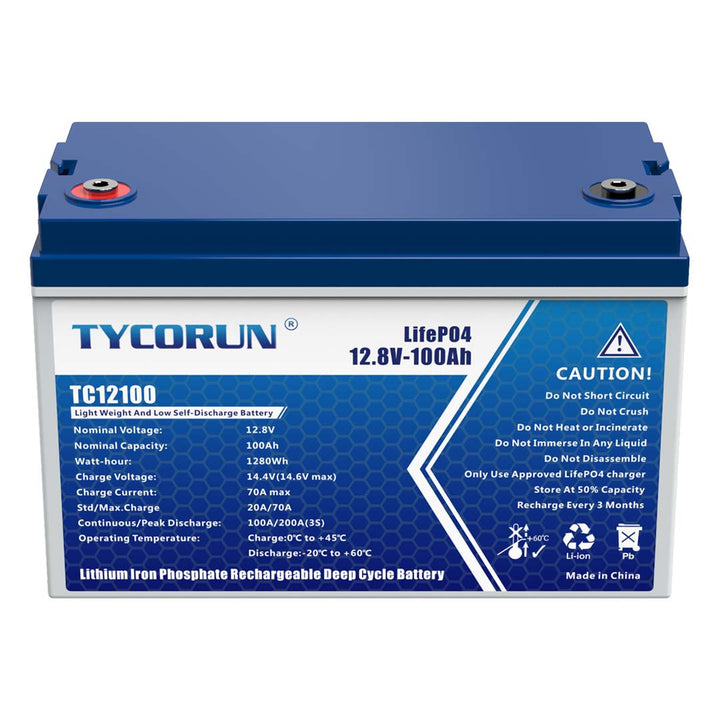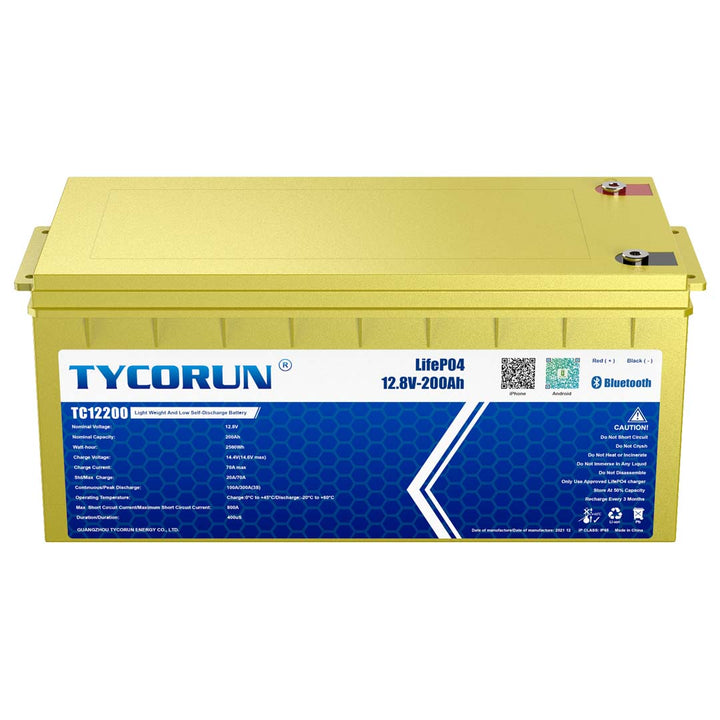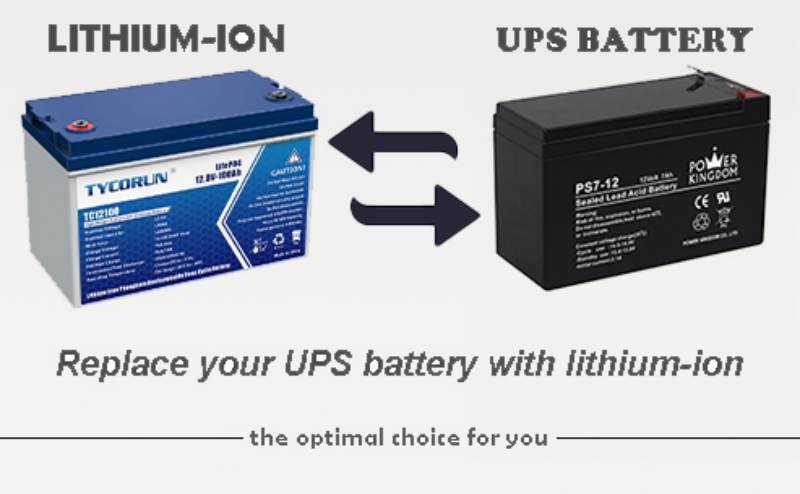
Main content:
- What is a UPS battery?
- How long can a UPS battery last?
- How do I calculate UPS battery needs? How many batteries are required for 20 kVA UPS?
- Can I use any battery in UPS? Which battery is used for UPS?
- Which battery is preferred in UPS? Is lithium-ion battery good for UPS?
- Can I replace UPS battery with lithium ion?
- What is the difference between UPS lithium battery and lead acid battery?
- How do I choose a lithium-ion UPS battery?
- Final thoughts
Lithium rechargeable batteries are indeed more advantageous than lead-acid batteries. That is why it would be best for you to replace your UPS battery with lithium-ion. However, the process can be a little complicated, and you must do it correctly. This article is about how to replace your UPS batteries with lithium-ion. You are going to understand the following by reading this article:
- What exactly is a UPS battery (and how it function);
- Factors to consider to replace your battery with a lithium-ion battery successfully;
- Differences between UPS lithium battery and lead-acid;
- How to choose a good UPS lithium battery.
1.What is a UPS battery?
Uninterruptible Power Supply (UPS) is simply a battery power backup that helps you avoid downtime for a certain duration during a power outage. It also helps power systems when the main power voltage drops significantly to the point that it cannot power efficiently.
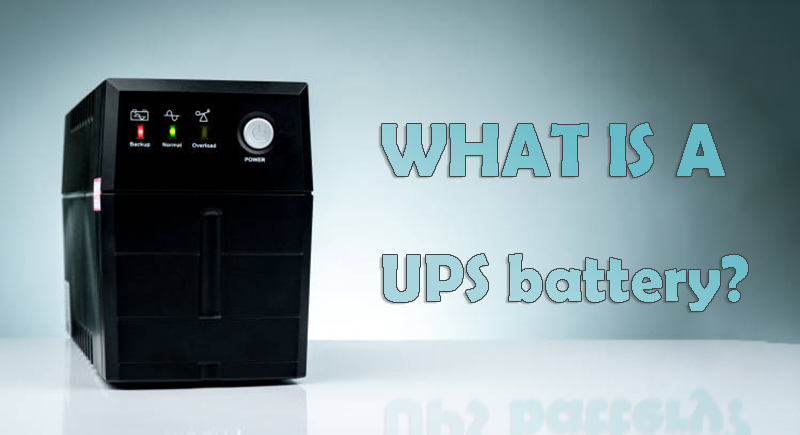
2.How long can a UPS battery last?
UPS batteries are durable - they can last up to five years or more if handled properly. However, it all depends on the type of battery you have in your UPS. Different batteries, for example, lithium rechargeable batteries, can last twice as long as lead-acid batteries, i.e. 10 years. Therefore, it is best to replace your UPS battery with lithium-ion.
3.How do I calculate UPS battery needs? How many batteries are required for 20 kVA UPS?
Calculating your UPS battery needs is not hard. You only need to know the following parameters; the backup time you need, your battery's capacity (in amp-hours), the battery's voltage, and your total load. The formula is straightforward: Backup time (hours) = Battery Capacity (Ah) x Input Voltage /Total Load (Watts). Consider the following example: You need to back up a load of 230 KVA. To get the exact number of batteries that you’ll need, you will have to know the voltage your UPS supports as well as the Ah rating of your battery.
So assuming that you want to power your load for at least 2 hours, and your UPS supports 12 volt 200ah lithium battery, you can get the number of batteries by first converting 230 KVA to kW. To do that, you’ll need to multiply 230 KVA by 0.9 (assumed power factor) = 207 kW. 207kW x 2 hours = 414 kWh. Then, calculate how many kWh your battery has by multiplying its Ah rating with its voltage - in this case 200 Ah x 12V = 2,400 watts, equivalent to 2.4 kWh. Total number of batteries required for this scenario: 414 kWh ÷ 2.4 kWh = 172.5 ≈ 173 UPS batteries.
4.Can I use any battery in UPS? Which battery is used for UPS?
No, you cannot use any battery in a UPS. The battery you choose to use has to be UPS-specific so that it does not get damaged too quickly. You can, however, replace a damaged UPS battery with a different one (chemical composition). There are three basic types of batteries that most UPS use:
- Lithium-ion;
- Lead-acid (Valve Regulated Lead-Acid and Vented Lead Acid);
- Gel batteries.
5.Which battery is preferred in UPS? Is lithium-ion battery good for UPS?
Lithium-ion is the most preferred of the three types of batteries as it has more benefits than the other two. Lead-acid batteries have been in the industry for longer than lithium rechargeable batteries. However, lithium-ion batteries have many other advantages that make them more beneficial for UPS than lead-acid batteries, which is why you should replace your UPS battery with lithium-ion. Lithium is good for UPS as it has the following features:
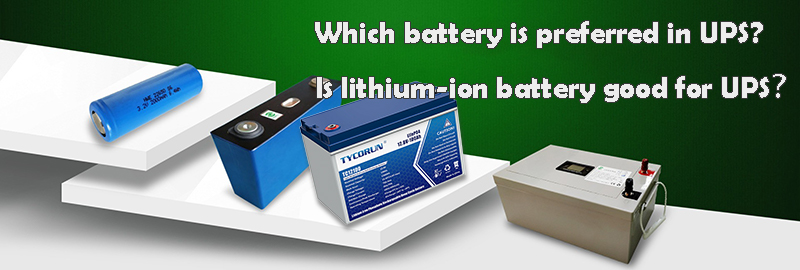
- Higher energy density - this means that the batteries possess more power and are way lighter than you can imagine.
- Longer battery life - lithium-ion batteries for UPS can last up to 10 years or more if handled properly.
- Exceptional performance even under extreme temperatures.
- Lithium-ion batteries for UPS are cheaper in the long run because they do not require active maintenance and can last long.
- Environmentally friendly - Lithium-ion UPS batteries can be disposed of as non-hazardous waste after it becomes unfit for further use.
- Lithium-ion batteries are fast-charge enabled, meaning you'll have minimal downtime durations.
The following batteries are suitable for ups:
|
|
12v 6ah
|
12v 12ah
|
12v 100ah
|
12v 200ah
|
|
Product image
|
||||
|
Price & Discount
|
$49.00(-29%)
|
$79.99(-33%)
|
$579.99(-27%)
|
$999.99(-44%)
|
|
Charge Current
|
1.2A
|
2.4A
|
20A
|
20A |
|
Discharge Current
|
6A |
12A |
100A |
100A |
|
More information |
Click to get the details |
Click to get the details |
Click to get the details |
Click to get the details |
6.Can I replace UPS battery with lithium ion?
Yes, it is possible to replace your battery with lithium-ion. There are a couple of things, however, that you’ll need to put into consideration;
- It is recommended to replace your UPS battery with lithium-ion of the same voltage. For example, if you have a 12V lead-acid UPS battery, do not replace it with a 6V Li-ion battery.The reason to replace your UPS battery with lithium-ion of the same voltage is that the UPS charging system is designed to charge a 12V battery. It might end up damaging your battery.
- It is important to note that most UPSs have a simple battery replacement method - a drop-in swap. However, not all UPSs have this feature. It would be best to check how your previous UPS battery was connected and connect your new lithium-ion battery similarly.
- Before you replace your UPS battery with lithium-ion, it would be best if you’d check the UPS charging system. If it has an automatic equalization mode, it would be best to acquire another UPS that does not have that type of charging system.An overcharge cannot equalize UPS lithium-ion batteries.
7.What is the difference between UPS lithium battery and lead acid battery?
Before diving too deep into the differences between these two battery types, it is important to note that lithium-ion batteries are better than lead-acid batteries. Although lithium-ion batteries have a higher initial cost than lead acid, they are cheaper in the long run. Here are the differences between the two battery types and reasons to replace your UPS battery with lithium-ion:
- Lifespan - The lifespan of a battery is measured in cycles - which means a complete charge and discharge cycle. A UPS lithium-ion battery can withstand at least 4,000cycles under the premise of being properly charged and discharged once a day on average, while a lead-acid battery can manage at most 500 charging cycles.
- Charging rate - As you read in this article, lithium batteries are fast-chargeable. They can comfortably handle higher amperage, meaning you'll have reduced downtimes.On the other hand, lead-acid batteries cannot fast-charge. They cannot handle high amperages during charging. An attempt to fast-charge your UPS lead-acid battery might cause irreversible damage - they’ll overheat (causing a thermal runaway).
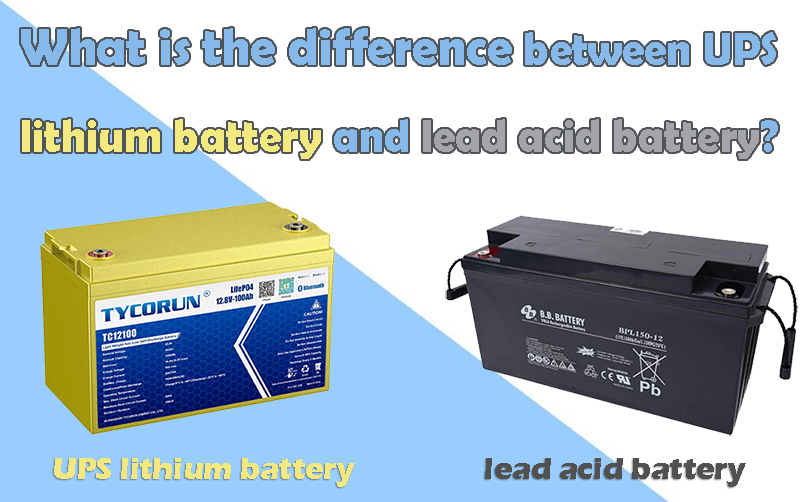
- Efficient - Your UPS lithium battery is more efficient than its lead-acid UPS battery. It has a higher energy density, meaning that it saves a lot of space and weight because of its small size.
- Depth of discharge(DOD) - Lead-acid batteries can only run to 50% depth of discharge. Exceeding this limit is very likely to have a negative impact on their lifespan. In contrast, lithium batteries can handle more than 80 percent deep discharge, which essentially means they have a higher usable capacity.Nonetheless, deep discharge of Li-ion batteries is not recommended as this will also shorten their cycle life.
8.How do I choose a lithium-ion UPS battery?
The first thing to do that will help you choose a lithium-ion UPS battery is to acquire it from a reputable lithium batteries store. Doing so will help you ensure that you are buying a quality battery. Then, proceed to check the UPS specifications - how many volts does its charging system support? Then, it would be best if you’d consider the following questions:
- How long will it power my devices before the main power is back?
- How reliable is it?
- How well does it perform under extreme temperatures?
You can calculate your backup time using the formula you read about earlier in this article. Also, lithium-ion UPS batteries are very reliable. They can fast charge when the main power is back and can discharge more than lead-acid UPS batteries. The operating temperature range of lithium batteries is wider than that of lead-acid batteries, between -20-60 ℃. Compared with lead-acid batteries, lithium batteries are more adaptable to high and low temperatures, and are less affected by temperature, so they are more durable. The exception is extreme temperatures, where performance of all kinds of batteries can be significantly reduced or even severely damaged.
9.Final thoughts
It can be a daunting process to properly replace your UPS battery with lithium-ion. The first step to replace your UPS battery with lithium-ion is finding out the UPS charging system, the number of volts it supports, and how long you'd want it to power your devices before the main power is back.
To calculate your backup time, consider using the following proven formula:
Backup time (hours) = Battery Capacity (Ah) x Input Voltage /Total Load (Watts).
Replace your lead-acid UPS batteries with lithium-ion has several benefits, as follows:
- Longer lifespan;
- Faster charging rates;
- Efficiency - saves a lot of space and is light;
- Exceptional performance under extreme temperatures.
To select the best UPS lithium-ion batteries, consider acquiring them from a reliable and reputable battery store, TYCORUN ENERGY will undoubtedly be your optimal choice as we only manufacture the best lithium batteries with guaranteed quality. Is it worthwhile to replace your UPS battery with lithium-ion? Yes, it will be cheaper in the long run and more beneficial in terms of what the UPS lithium-ion battery offers.
Related article: lifepo4 vs lead acid, gel battery vs lead acid



